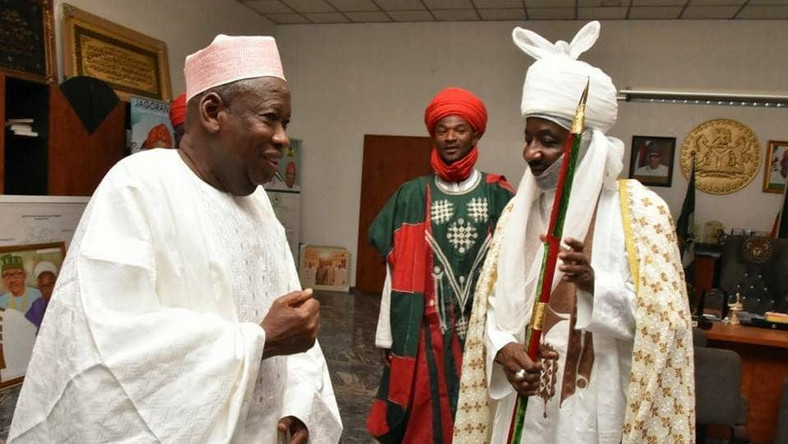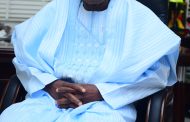In the days when Nigerian campuses were brimming with endless succession of intellectual clarification, scholars around Bayero University, Kano, (BUK) spent a lot of time debating whether there is “the Kano mind”. That is, whether there is a mindset unique to Kano people. It is the sort of debate that the ‘critical turn’ in the post Cold War would dismiss as essentialism but it is also the kind of debate the same ‘critical turn’ would welcome in its near slavish deference to difference. Should the debate return to Kano academia today, it would be more complicated regarding what the various paper presenters would use to illustrate competing claims. “Kano mind” thesis does not preclude conflict but the Kano spirit it implies speaks to ideological rifts between the status quo and its discontents. Today, the status quo is being quashed for being radical by a scion of Kano radicalism. That reverses the trend between the Government of the North/Kano and the Kano Monarchy in recent memory. The first was between Sir Ahmadu Bello as the Premier of the North and the grandfather of the current emir; the second being that between the Abubakar Rimi administration in the Second Republic and the late Ado Bayero.

The late Alhaji Muhammadu Abubakar Rimi, Kano State governor, 1979 – 1983
Because Nigeria ends up paying for it each time there is confrontation, reversal of the “Kano mind” argument is an issue to worry about beyond Kano. The story is told of how the older Sanusi at the point of dethronement said things which some subsequent happenings are sometimes interpreted as fulfillment. In the tussle under Rimi, Dr Bala Mohammed, his fire-eating Political Adviser was assassinated, a big loss for a country at Nigeria’s level of development to lose such a powerful resource person. Who can guarantee that the present tussle may not produce a consequence beyond what the direct stakeholders might think?
Anybody can give any reasons for creating new kingdoms out of any mega kingdom as has been done in Kano last week. The only question is why the state government could not afford to go about it in a more organised manner. The governor without whom no such move would have been possible has just emerged from an election that is broadly seen as a product of uncommon intimidation. The fall outs are still being sorted out, meaning that Dr. Abdullahi Ganduje, the governor, is engaged in a fight to finish with a Dr. Rabiu Musa Kwankwaso who is not a push over in Kano politics of today. Is it not a case of overstretching power to then add a Lamido Sanusi Lamido to the list of forces being combated? What if the relationality of power enables the David in this case – the emir – to floor the Goliath – the governor on the long run? History is always about the long run anyway. It would have been thought that the sight of a sea of human heads at the Emir’s Palace in Kano of all places in April 2010 as part of the rites of passage for Abubakar Rimi would instruct a more careful way of dealing with an Emir of Kano considered to be recalcitrant. Perhaps, human beings are incapable of looking at the many angles to every issue.
There is this disquieting dimension to the power tussle between the Kano State Government and the emir for many silent and not so silent observers. Governor Ganduje is not a poorly educated person. By tendency, experience and formal education, he is very fit to be a governor of the state. In terms of formal education, for instance, he did not just attend the University of Ibadan which is still our own Oxford, warts and all, he was actually supervised by one of Ibadan’s most regarded Political Scientists. So, why doesn’t education appear to have disciplinary impact on him, particularly on how the streets could end up determining the outcome of some of his recent actions? Isn’t leadership about reflections as opposed to heroism?
“Kano Emir is too vocal”, “Kano Emir is too vocal” is part of the reactions to the tussle but what is the subjugated knowledge in this type of claim? It is an unchanging conception of emiral authority in the image of the monarchical tact symbolised by Alhaji Ado Bayero. But, when was Ado Bayero Emir of Kano? The time – space context of the respected late Monarch is the early 1960s to the end of the Cold War. He died in 2014. Kano wants an emir who can’t be even in the digital age when data and images are taking the rest of humanity far away, leaving Nigeria damned too far behind? This is what interlocutors are asking.
There are those who grant that Sarkin Kano was probably too forward, too involved and liable to be tied to campaigning for opposition. But, would that justify actions that everybody interprets as a punitive exercise? Does everyone still believe an emir cannot express himself or should not express himself? Posing these questions is, for the quarters where they are coming from, important because there are places Kano politics influence in Nigeria and certain things it does must be interrogated.

The Emir
There is an argument going on that whatever anyone says about the emir, he is a voice for collective attack on poverty. If someone who is not suffering from poverty can be identified with one such positive attribute at a time poverty is instigating violence all around us, why is it not possible for society to grant him his one or two excesses?
Someone has been heard saying that after all Rimi administration dealt with Ado Bayero, a more entrenched emir of Kano. Yes, that is factual. Rimi even said the emir of Kano is not more than another staff of the government. But the difference between the Rimi administration and the then emir was a more fundamental question of ideological essence of the stool rather than punishment for not supporting him as governor. The PRP naturally believed emiral authority stood with the status quo and pro-NPN, the symbol of the establishment then. There is, therefore, little to compare Dr. Ganduje’s onslaught with Rimi’s on Ado Bayero because there are no ideological differences between the APC and the PDP. More than half of the people in the APC were in the PDP.
So, why didn’t President Buhari even try to experiment with populism in the case, coming in at the last stage to call for truce? One answer is that it is not in the character of the president to dramatise, meaning that he must have offered his own views quietly. The second is he could not do anything because he has got what he wants and he is not too concerned with much else. As to what it is that he wants, the answer is that he wants power and he has got power. In any case, the Kano governor could not have embarked on cutting Kano Emirate into more emirates without briefing the president first.
Why are radicals bothered about what happens to an institution that adds no value to the radical preference? Since when is any institution radical in itself and permanently so? comes the reply. Almost any institution can serve a radical or a conservative cause. What determines that is the space and the time, not the institution in and of itself. As the argument goes, the concern for radicals is not the conservatism of the institution but the power relations between the conflict parties, with particular reference for elements of disregard for rule of law by an incumbent governor of the ruling party.
So, is Muhammadu Sanusi 11 right all the way, without blames? In other words, after his sack as Central Bank Governor and after his earlier skirmishes with the same Ganduje government, shouldn’t he have learnt to accept that his loyalty is to government in power and his relationship with Kwankwaso who appointed him now becomes a close contact affair? Perhaps, he should have learnt that lesson, asserts the counter argument which, however, insists that even if this is punishment for indiscretion, that does not rule out the need to handle it in a manner that brings rather than subtract legitimacy for the government.
It is against the above background that there is talk about reversal in Kano.




























